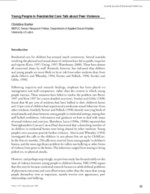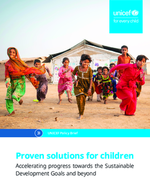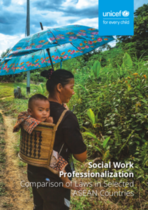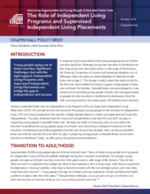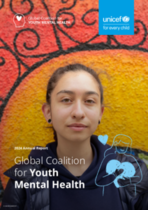Young People in Residential Care Talk about Peer Violence
Residential care for children has aroused much controversy. Several scandals involving the physical and sexual abuse of residents have led to public inquiries and reports (Kent, 1997; Utting, 1997; Waterhouse, 2000). These have almost all concerned abuse by staff.

